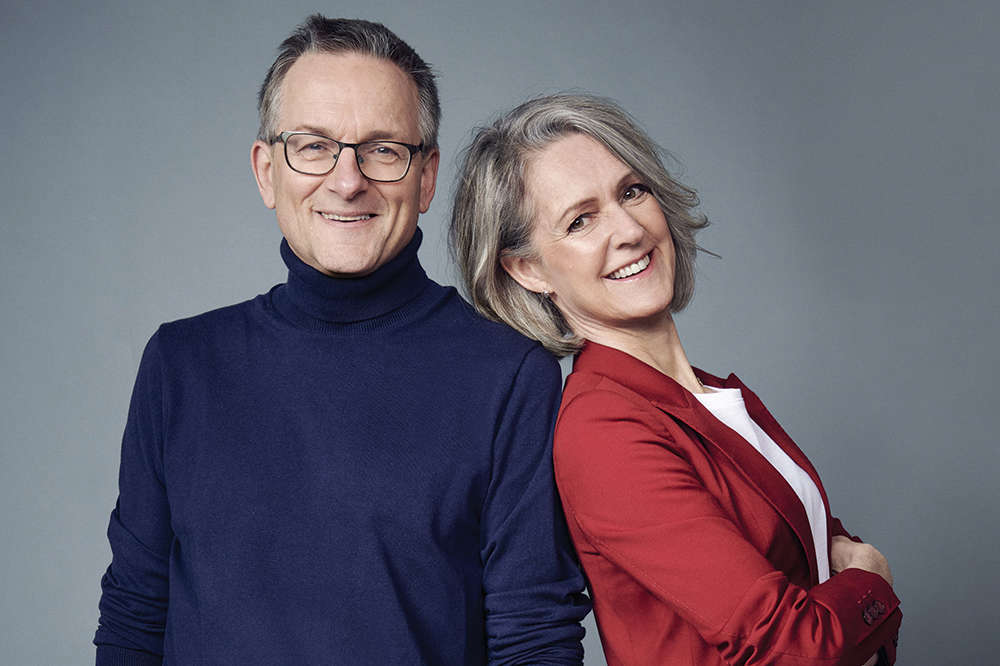
Husband and wife health gurus Dr Michael Mosley and Dr Clare Bailey are on a mission to bring healthy eating and living to the masses. They talk to Sara Whatley about their upcoming tour and the health benefits of eating a Mediterranean diet...
Jumping into the New Year with a healthy start and good intentions is a classic January resolution. But how do we keep it up through the year, and more than that, adopt a healthy lifestyle for the rest of our lives? Dr Michael Mosley and Dr Clare Bailey are here to help us do just that.
You will know Dr Michael Mosley from his many popular television programmes such as Trust Me, I’m A Doctor, his regular appearances on the One Show and as the presenter of many medical and scientific documentaries and series. As a journalist, producer and TV presenter, Michael has worked for the BBC since 1985. He is also a former doctor and expert on weight loss and diet and the man behind the original 5:2 fast diet, and more recently the Fast 800 diet, which is again based on restricting calories, fasting and embracing a Mediterranean way of eating. He is the author of many diet and health books, has a column in The Daily Mail and presents the popular podcast, Just One Thing.
The other half of this healthy husband and wife team is Dr Clare Bailey. She is a practicing GP specialising in nutrition, diet and lifestyle changes to help promote weight loss and reverse Type 2 diabetes. Clare is also a journalist and author, writing for the Daily Mail, You Magazine and has penned many recipe books, including the majority of the Fast 800 series. As Michael said, “She takes my basic ideas and turns them into something you would actually like to eat.” On her Instagram account Clare shows the world her passion for healthy and delicious eating through her easy to follow and yummy looking recipes.
As parents to four children, Clare, along with husband Michael and Professor Stephen Scott who is a professor of Child Health and Behaviour at Kings College London, have set up Parenting Matters, an online course to help parents navigate the ups and downs of raising children. “It’s based on love and limits,” explained Clare. “It’s all evidence based, and we’re going to build on this theme of food as well, getting the family together, how to make mealtimes fun and engaging but also set limits.”
Michael and Clare met at medical school in 1980. “100 of us in the year and the Dean said four of you will marry, and I met Clare then,” said Michael. They have been working together for 10 years as the Fast 800 books have emerged, and on other projects. “We work in different sections of the house…” said Michael, “…east and west,” added Clare, “…and we meet for coffee,” finished Michael. But “honestly, it has been a real pleasure,” confirmed Clare when I asked them what it’s like working together.
So, let’s see how this dream team fair on their first ever tour together, Eat (Well), Sleep (Better), Live (Longer). I started by asking them what the audience can expect when they go to see the show.
Michael: I’m going to be showing some clips from some of the more outrageous things I’ve done and Clare will be commenting on them from her perspective. We are going to be talking about food and the impact it has on your physical health. We’ll also be looking at the impact of diet on mental health, which I think is the next great health revolution in medicine and food. I’ve done a lot of stuff over the years about food but Clare is the one who turns it palatable because she is one of the UK’s best selling cookery book writers.
We’re going to look at sleep as well. I’m writing a book on sleep at the moment, which will come out in January and I’ve just done a three part television series on sleep which will come out in 2024. What is it, why is it, the stages of sleep and why do you need them, and what can you do about it, a sure fire way to deal with insomnia and such. We’ll have a comedy bed on stage! Clare has parasomnias (she walks and talks and does all sorts of strange things in the middle of the night), so we’ll talk about sharing the secrets of the marital bed.
And we’ll be taking questions, we love questions. We’ll hang around afterwards to chat to the audience, sign books and do selfies.
Clare: Queries about diet, lifestyle, menopause, sleep, Fast 800…
M: You name it, we’re happy to talk about it.
C: And also bringing in an element of feeding all the family healthily rather than it just being diet related, including children and tips to work as a family.
M: And Clare is going to be doing cooking demos, so that will be interesting live. How to make keto mug bread in a minute and a half in the microwave.
C: But it doesn’t always work so there is always some jeopardy!
M: Clare is working on another book at the moment called Fast 800 Treats, which is basically how you can have your cake and eat it. We hope the audience come away feeling full and satisfied, that you’ve learned lots of new and surprising stuff…
C: Weird and slightly gory stuff, my job is to reign him in, slightly…
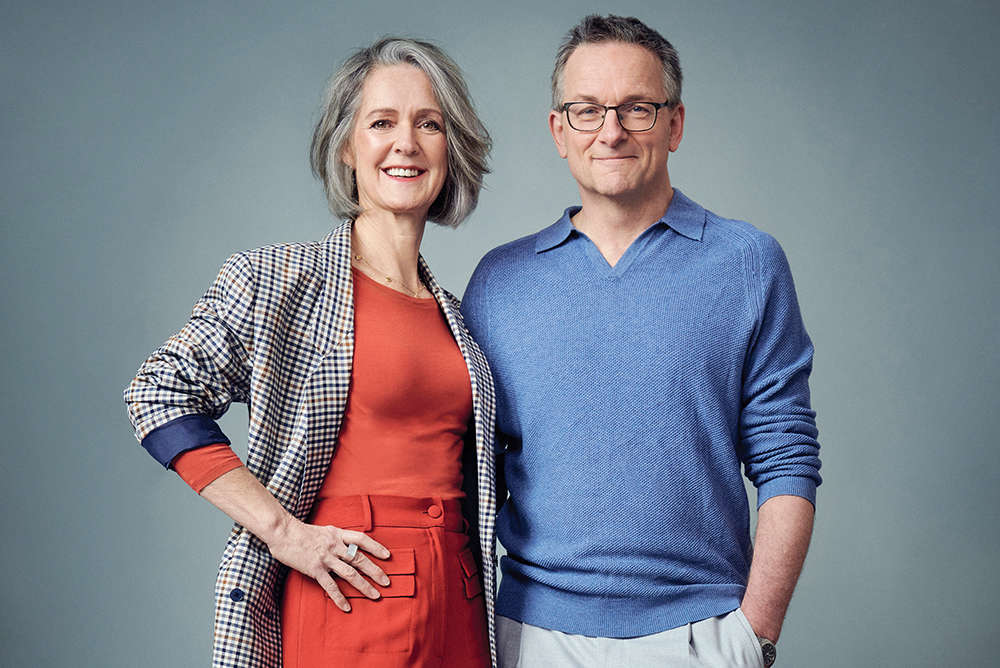
Clare, you’re a trained GP, where does your love of cooking and nutrition come from?
C: Really from a very young age. I can remember meals from age five onwards. My mother was a very adventurous cook so we grew up eating offal and tongue and tripe. As a family we really celebrated food in terms of family dynamics. The whole thing was about coming together as a family and that’s very much been lost sadly over the last few decades. Both my parents worked and so we cooked from a young age.
M: I was the exact opposite in that I grew up in a family that really wasn’t interested in food.
C: You grew up on rice and soy sauce!
M: Two veg and meat always had to be cremated, the veg boiled to death. You’d have to say neither my father or mother were very good at cooking or interested in cooking. When I met Clare I had an absolutely appalling diet. I used to eat pink salami in white bread every day for lunch.
C: And the salami left a red ring on the bread! It’s attitudes to food that you grow up with and we were never forced to eat anything, but we did eat everything.
One of the keys to what I do is I keep it simple. I haven’t got time to spend slaving over the stove so I use few ingredients, I make it practical. Frozen food and tinned food is just as healthy. And keep the ingredients punchy, tasty but simple and doable. That makes it easy to eat well and not grab processed and unhealthy stuff when you’re hungry. I wouldn’t recommend a recipe that I wouldn’t have time to do myself.
M: It’s not just about physical health but mental health, because we know that the sort of foods that you find in there [The Fast 800 recipe book which is based on a Mediterranean diet] are the sort that are linked with better mental health.
I hear increasingly about the lack of protein in our diets, particularly for women and particularly for menopausal and perimenopausal women, what can you say about that and why has it taken so long to come to the mainstream media?
C: In terms of menopausal women the ability to process protein decreases with hormone change so you have to up your protein to make up for that. Otherwise you are left feeling hungry all the time. You don’t store protein like you do with carbohydrates and fat, so you need to have enough on a daily basis, and most people just don’t eat enough protein in their diet anyway.
M: I think the reason why it has taken so long is because studies which were done which were not really looking at the protein needs of humans but were estimates, have stuck. So 45g for women and 55g for men, but the reality is if you are older, menopausal, or pregnant then you need more than that. There have been numerous studies for example showing you need high levels of protein if you are to prevent bone loss, muscle loss. I’m friends with a couple of academics in Australia who have done numerous studies showing that we have a fundamental drive for protein.
Processed food tends to be low in protein and high in things pretending to be protein. So if you’ve got beef flavoured crisps your brain briefly thinks, ‘Ooo I’m getting lots of beef!’ but in fact you’re getting zero beef so you eat more and more. It is surprising that menopausal women are not told or are unaware that they need to up their protein intake if they are not to go insanely hungry and start piling on the weight. There is stuff that clearly needs improving in the British diet.
Michael, you managed to reverse your type 2 diabetes through your 5:2 diet, which at first was disregarded as a faddy diet, then later on accepted, did you find that turn around surprising?
M: No I didn’t, I was expecting it. I thought there was decent science behind it and also open to the possibility that I might be wrong. Fortunately, lots of studies came along that basically said yes there is something here. And then I met Professor Roy Taylor from Newcastle University and he had done a lot of research into reversing type 2 diabetes but through an even more rapid diet. When I first met him, he said ‘You need to loose about 10 kilos’, and that’s what I had done and that was enough [to reverse it]. The danger is if you put weight back on again [the blood sugar levels] will go back up and I’m conscious of that so a lot of my behaviours now are aimed at trying to ensure I don’t put on weight. That’s the difficult thing. I have maintained it through a variety of techniques, not least through wearing a tight belt. That tells you when you’re beginning to bulge.
What would you say to people who want to engage with your diets but can’t due to a medical condition?
M: If you can, go more Mediterranean without calorie restricting and perhaps a little more low carb.
CGM monitors (continuous glucose monitors) have become trendy to help people understand how food affects their blood sugars, even if they are not diabetic. What are your thoughts on them?
M: I’ve just written about this for the Daily Mail! I think they are really interesting, I’ve done a few little experiments myself. [In his column Michael reported finding that coffee first thing in the morning made his blood sugar spike, as did sweet treats and cake, but a brisk walk after eating helped them go down. He talked about the risks of becoming obsessed with checking, especially if you are not diabetic, and that spikes in blood sugar don’t necessarily mean what you just ate was unhealthy, and that many other factors can affect blood sugar spikes. In conclusion, ‘don’t rely on a CGM as a way of shaping your future diet.’]
As health gurus, do you feel yourselves under pressure to maintain your own health and weight?
M: Clare doesn’t because it’s basically her way of life…
C: It’s how I live – the recipes are all just how I eat. I’m lucky I don’t have a sweet tooth.
M: I do have a sweet tooth and it’s always a struggle. I am more inclined to put on weight, I am more of a Labrador, she is more of a Greyhound.
C: I have to hide the chocolate!
M: I eat stuff if it’s in front of me, or behind me… For me it’s an ongoing struggle and I guess it always will be. We know that when it come to weight – genetics play a huge part. I spoke to Charles Yode, professor of genetics at Cambridge [who] said it is as inheritable as height. We don’t blame people for being tall or short, but we do blame them for being overweight. Their appetite and preferences to some degree are being driven by genetics, but at some level you just have to go OK that’s tough, I’ve just got to cope with it. That’s certainly my attitude to this; if I let myself go I will rapidly become overweight, diabetic, hypertensive and drop dead, and I don’t want that to happen!
When I’m overweight I snore the house down. If you are a snorer [losing weight if you are overweight] is the best way to prevent snoring. Clare records my snoring and plays it back to me…
C: For a good laugh!
And finally, do you get to hear about people’s health success stories?
C: People nab Michael when he’s out and about, from all walks of life, just to say thank you, love what you’re doing. It’s very touching, very affirming.
Michael and Clare's Show Eat (Well), Sleep (Better), Live (Longer) will be at Congress Theatre, Eastbourne on Thursday 15th February

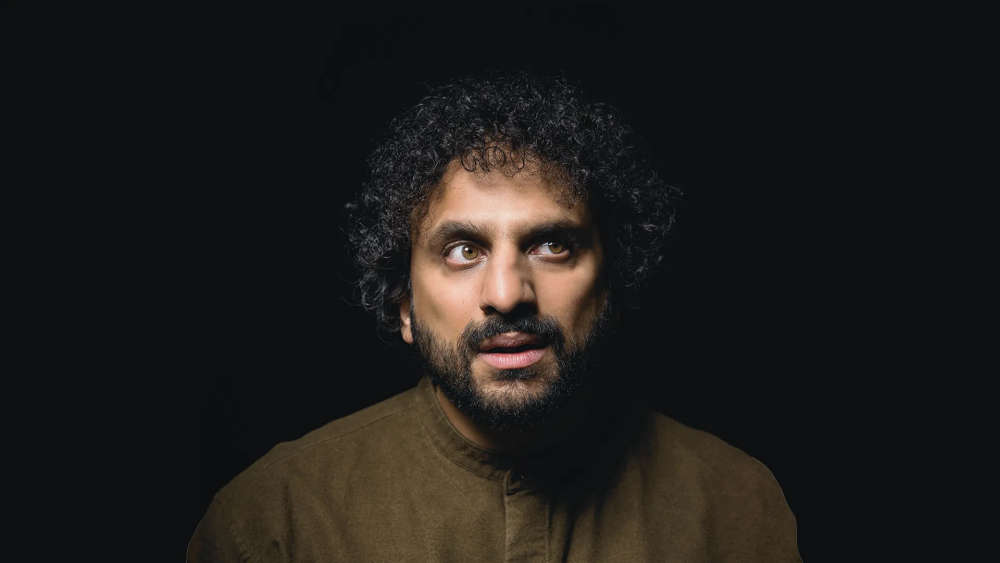 "I quite like to end up with a setlist that involves a catalogue of human misery..." Nish Kumar on his return to stand-up comedy
"I quite like to end up with a setlist that involves a catalogue of human misery..." Nish Kumar on his return to stand-up comedy
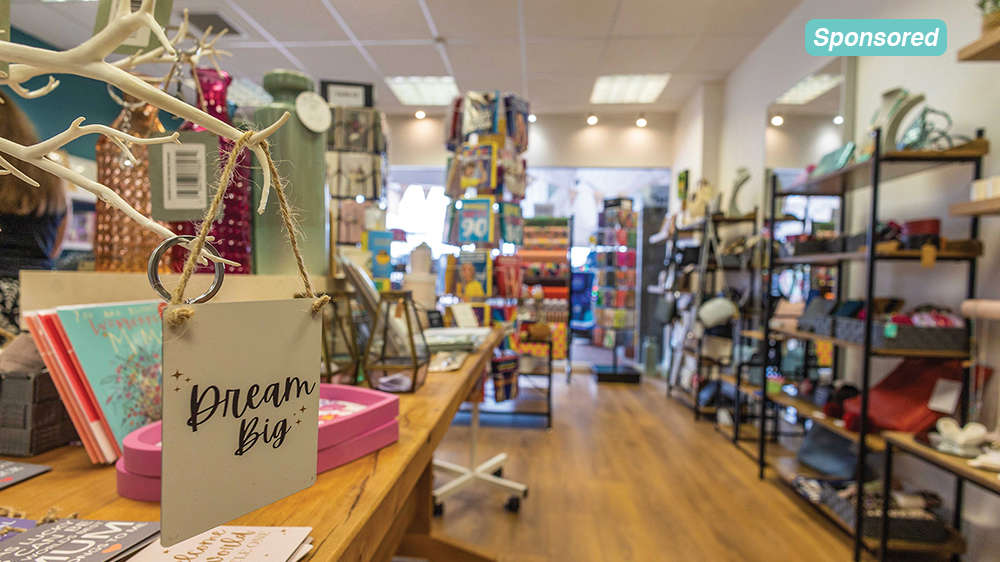 Pure Inspiration
Pure Inspiration
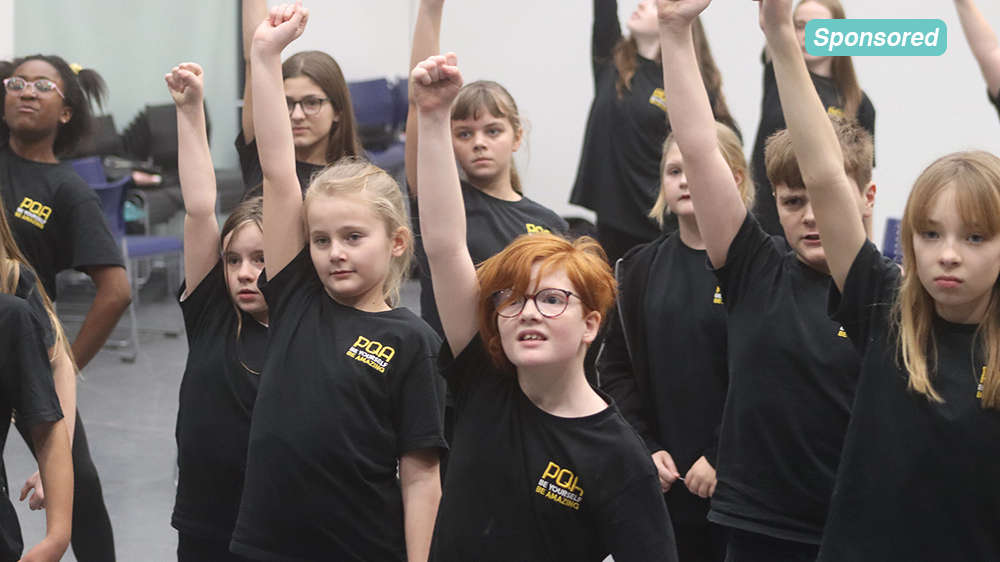 Creating a Dream at The Pauline Quirke Academy
Creating a Dream at The Pauline Quirke Academy
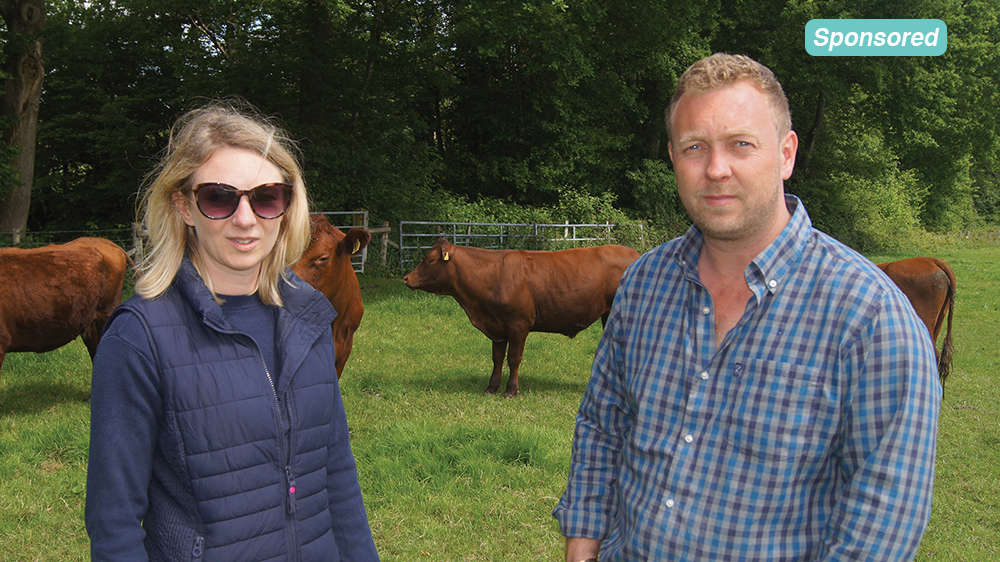 A Little Slice of Heaven
A Little Slice of Heaven
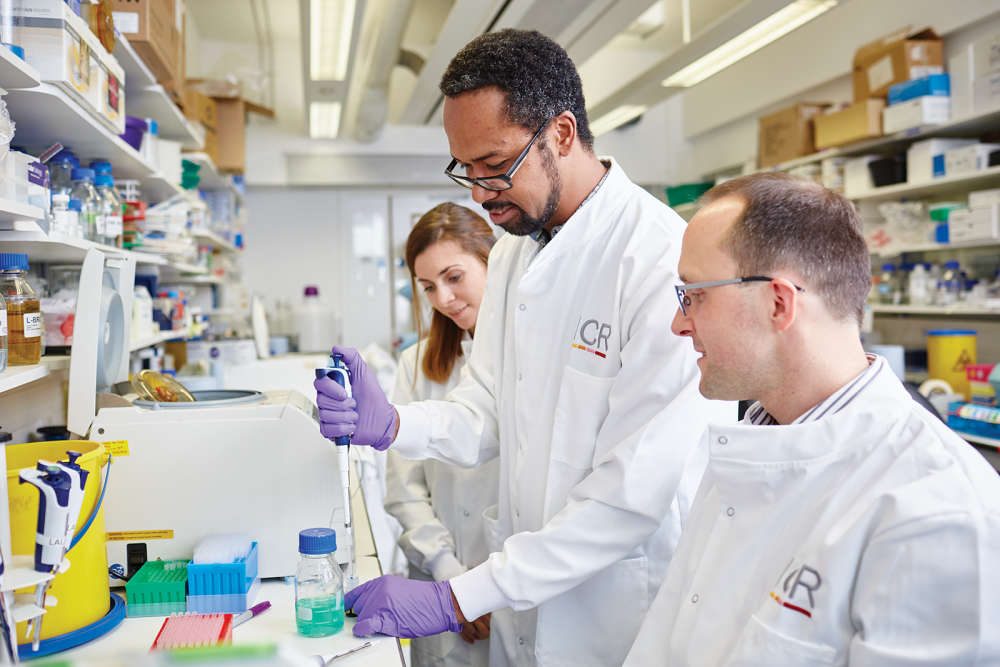 Charity: Institute for Cancer Research
Charity: Institute for Cancer Research
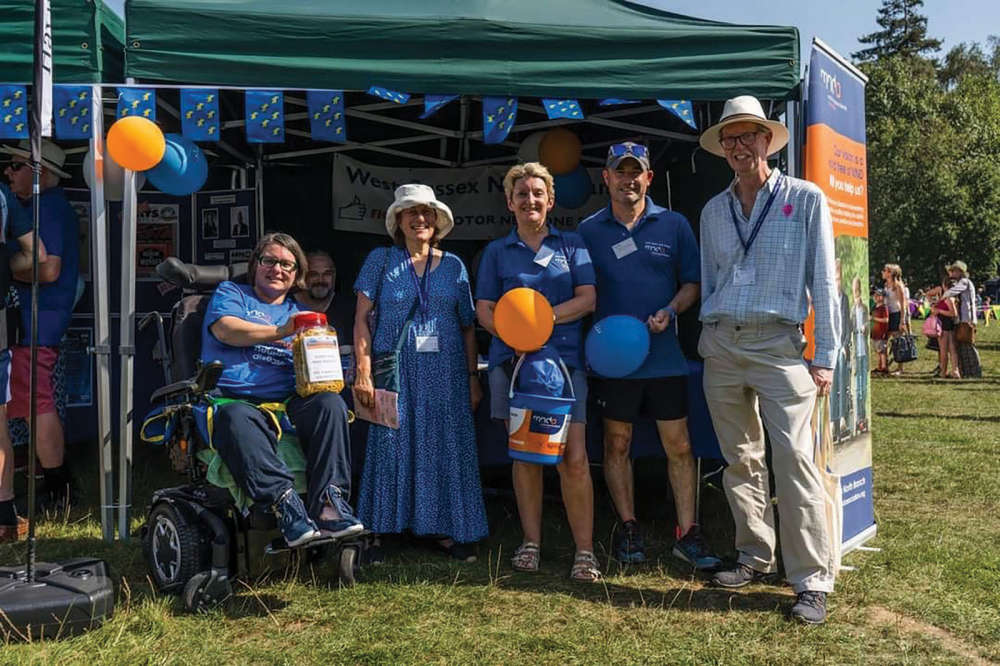 Volunteer for Motor Neurone Disease Association
Volunteer for Motor Neurone Disease Association
 Riding to Success
Riding to Success
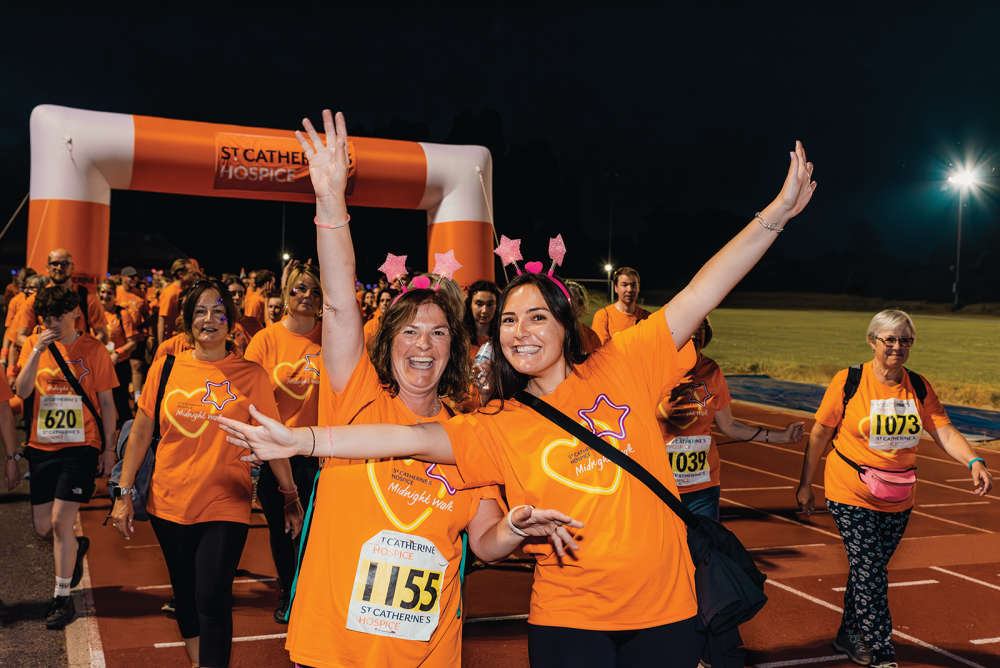 Step out for St Catherine’s Hospice
Step out for St Catherine’s Hospice
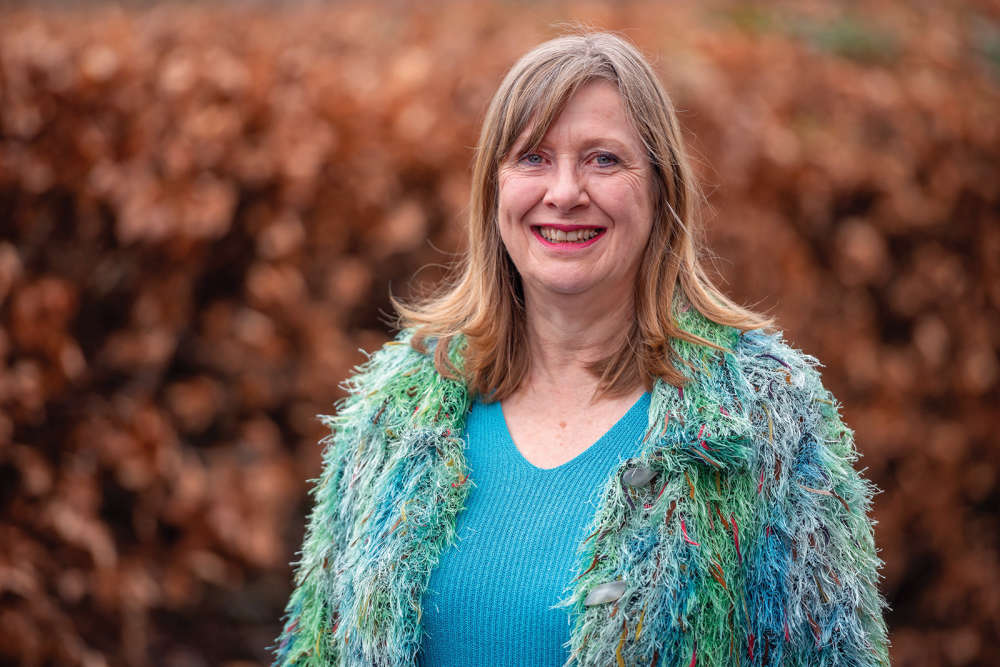 Homes for Ukraine: Opening Your Home and Your Heart
Homes for Ukraine: Opening Your Home and Your Heart
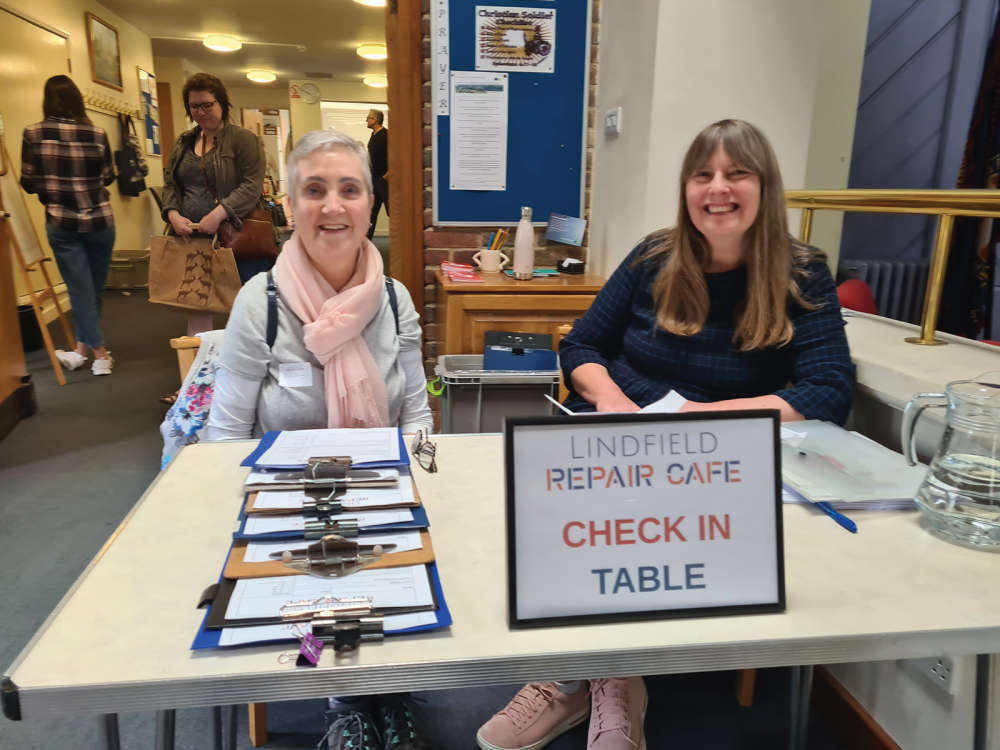 The Joy of the Repair Café
The Joy of the Repair Café
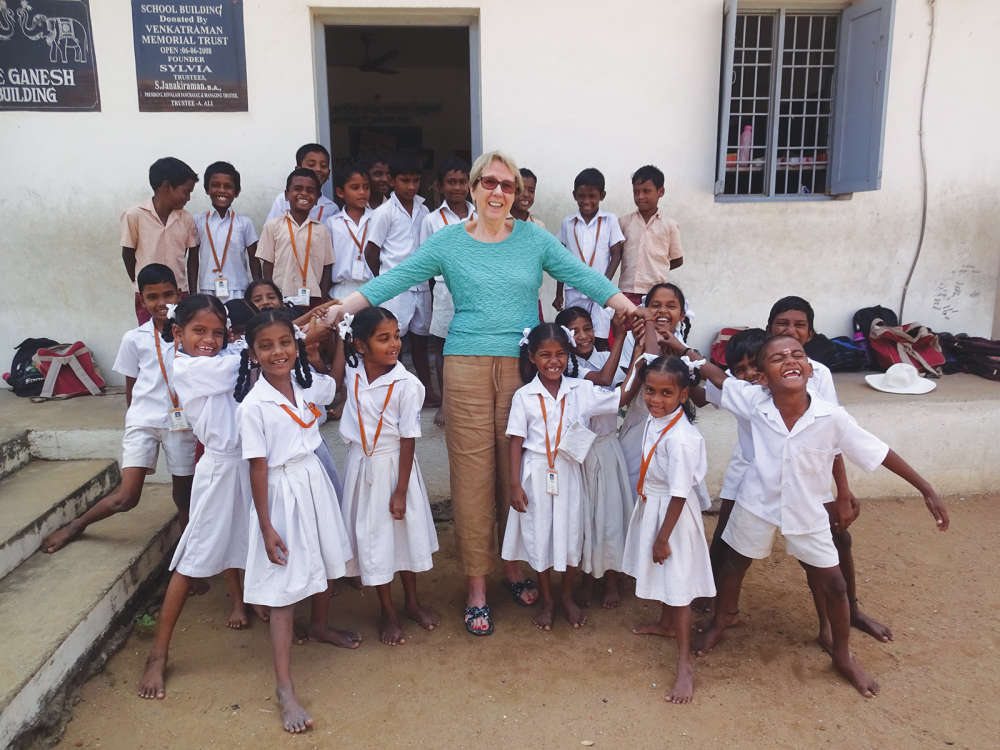 An Unlikely Retirement
An Unlikely Retirement
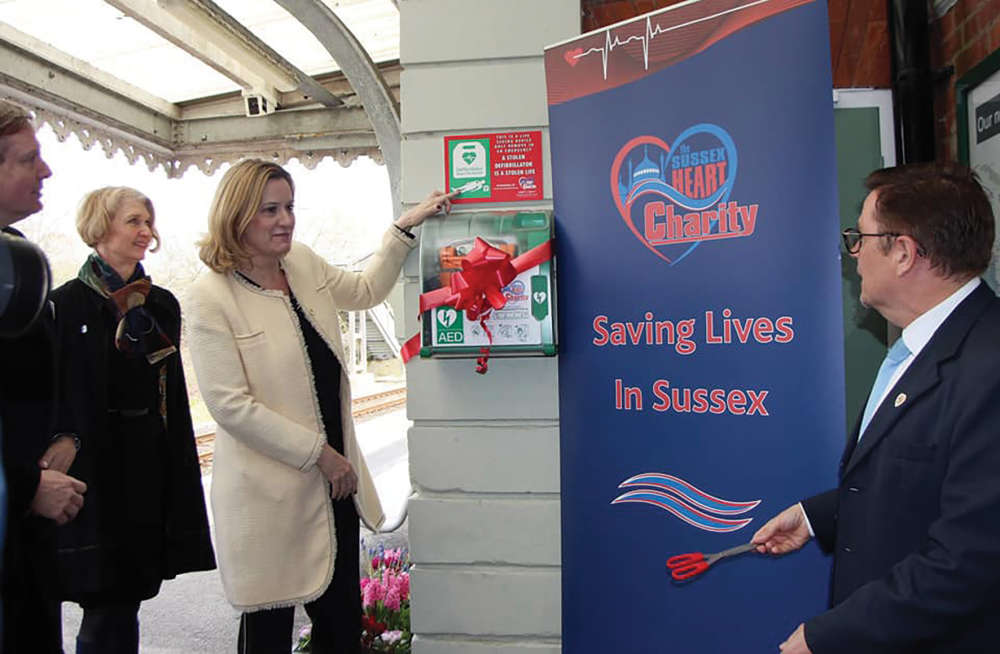 Matters of the Heart
Matters of the Heart
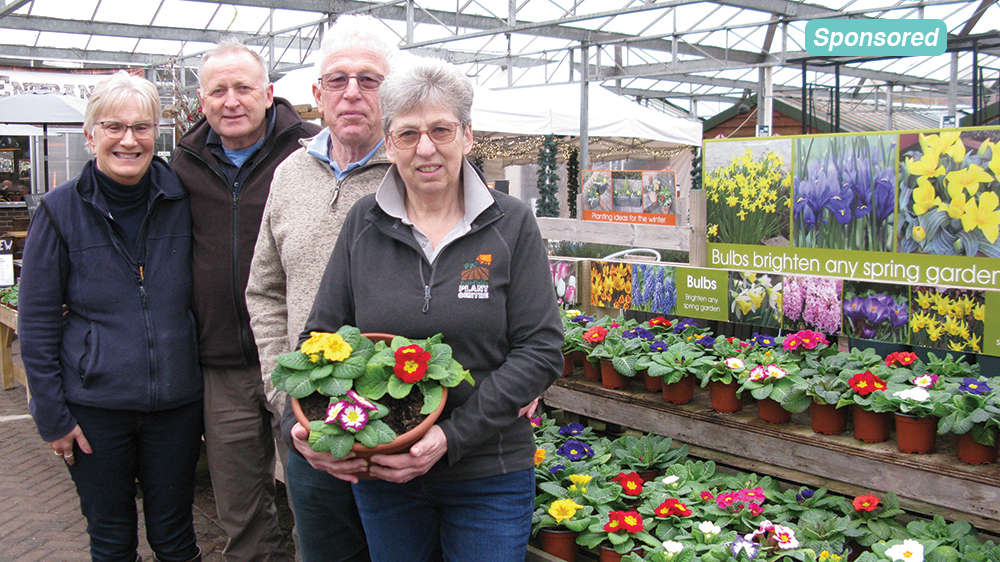 Rushfields: Celebrating 40 Years
Rushfields: Celebrating 40 Years
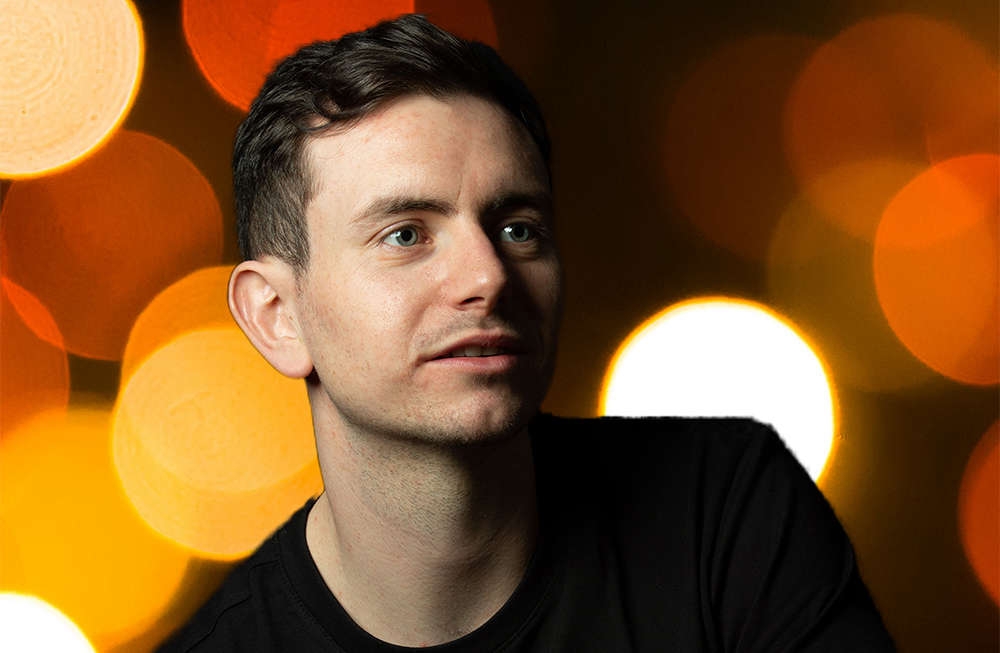 Interview: Comedian Connor Burns brings his Vertigo tour to Sussex
Interview: Comedian Connor Burns brings his Vertigo tour to Sussex
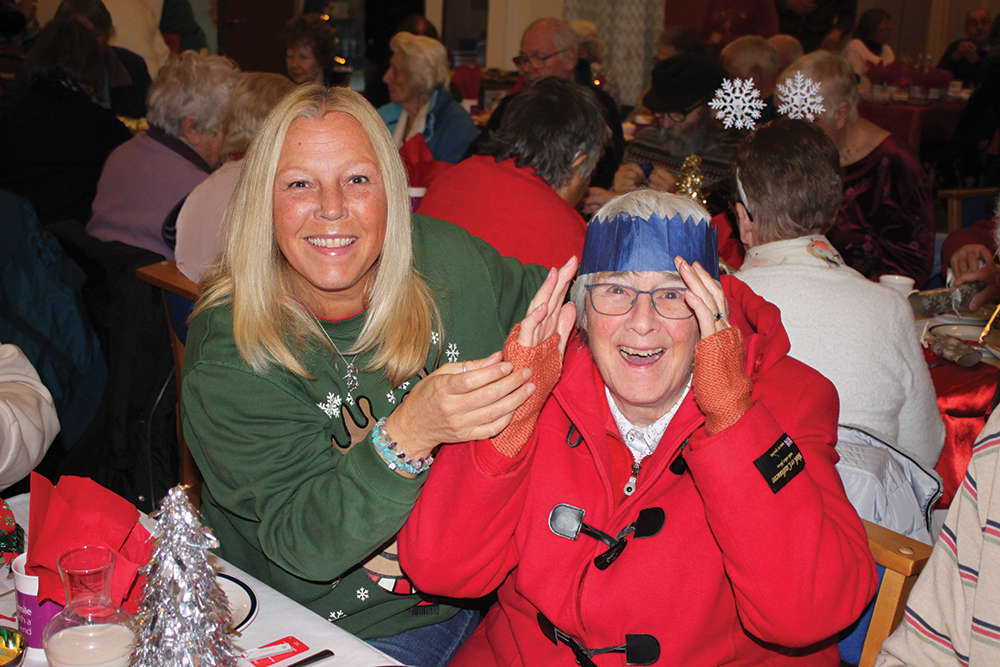 You've Got a Friend
You've Got a Friend
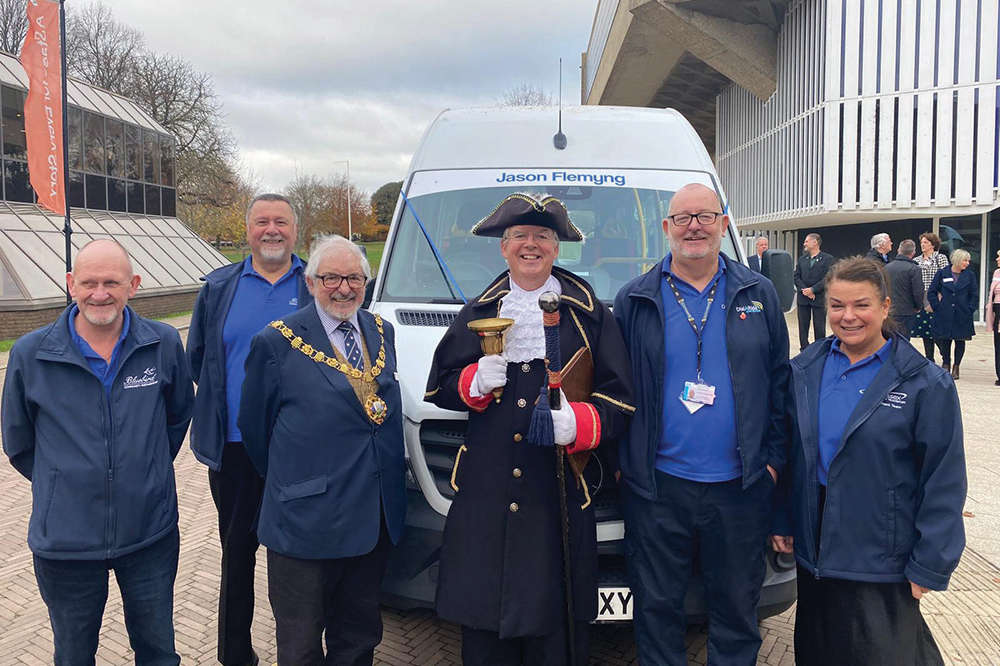 Charity: Community Transport Sussex
Charity: Community Transport Sussex
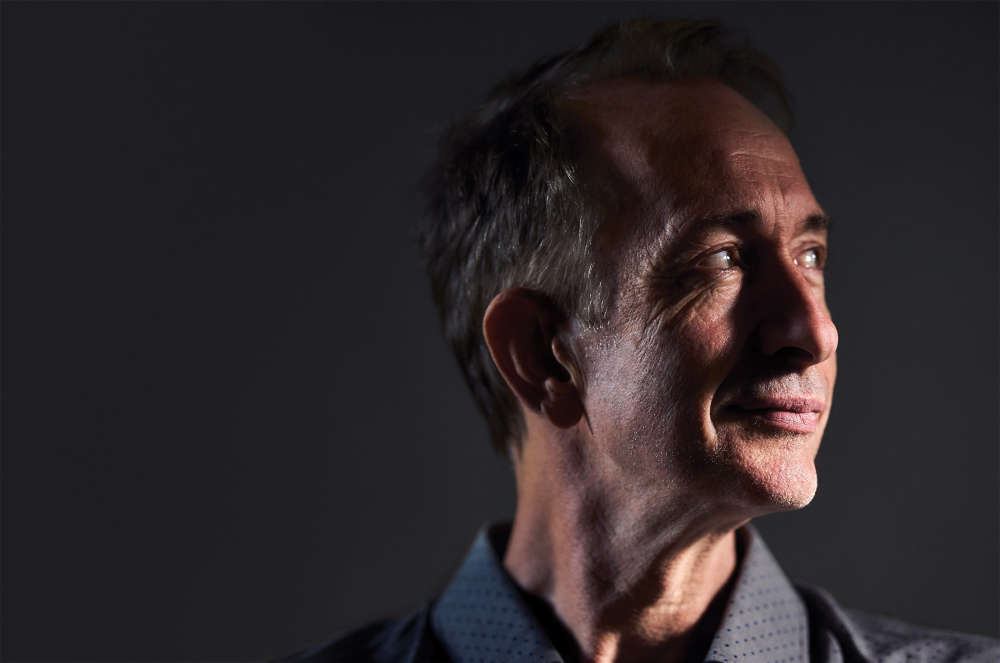 Mat Osman: A Record of Creativity
Mat Osman: A Record of Creativity
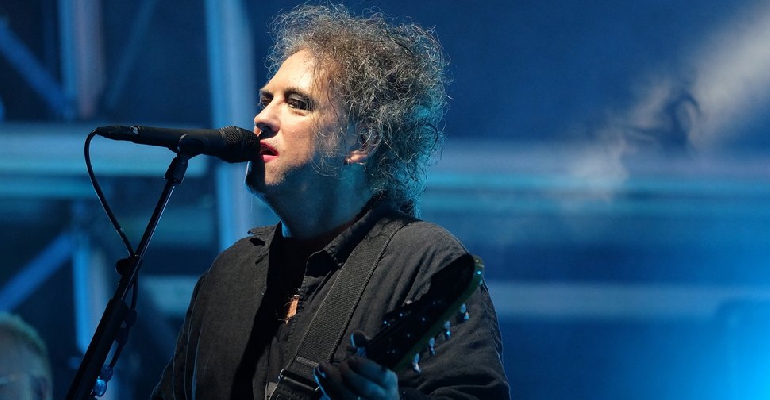 Six Facts You Might Not Know About Robert Smith
Six Facts You Might Not Know About Robert Smith
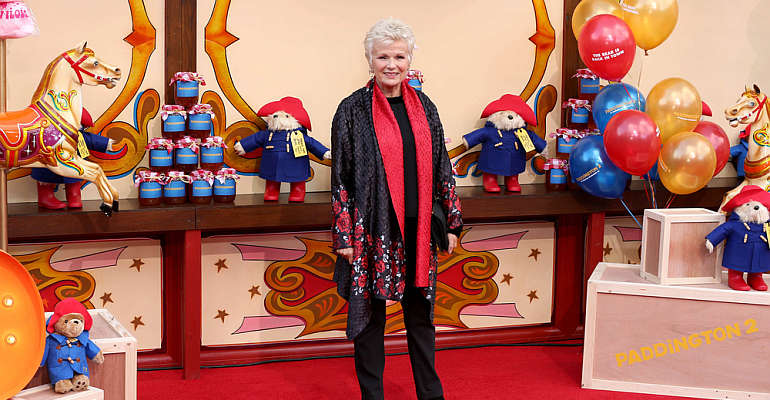 Six Facts You Might Not Know About Dame Julie Walters
Six Facts You Might Not Know About Dame Julie Walters
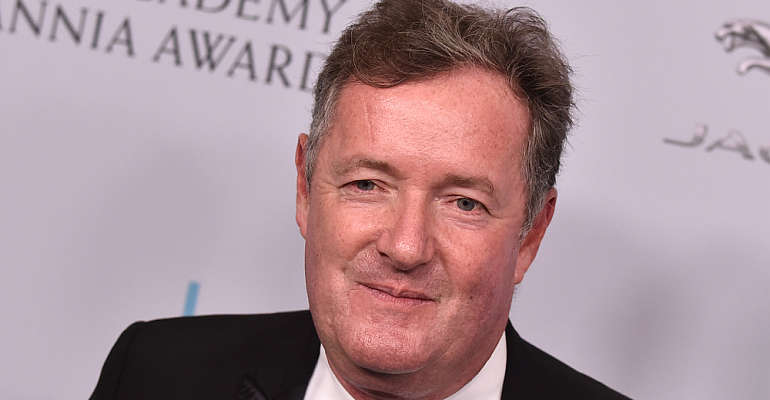 Six Facts You Might Not Know About Piers Morgan
Six Facts You Might Not Know About Piers Morgan